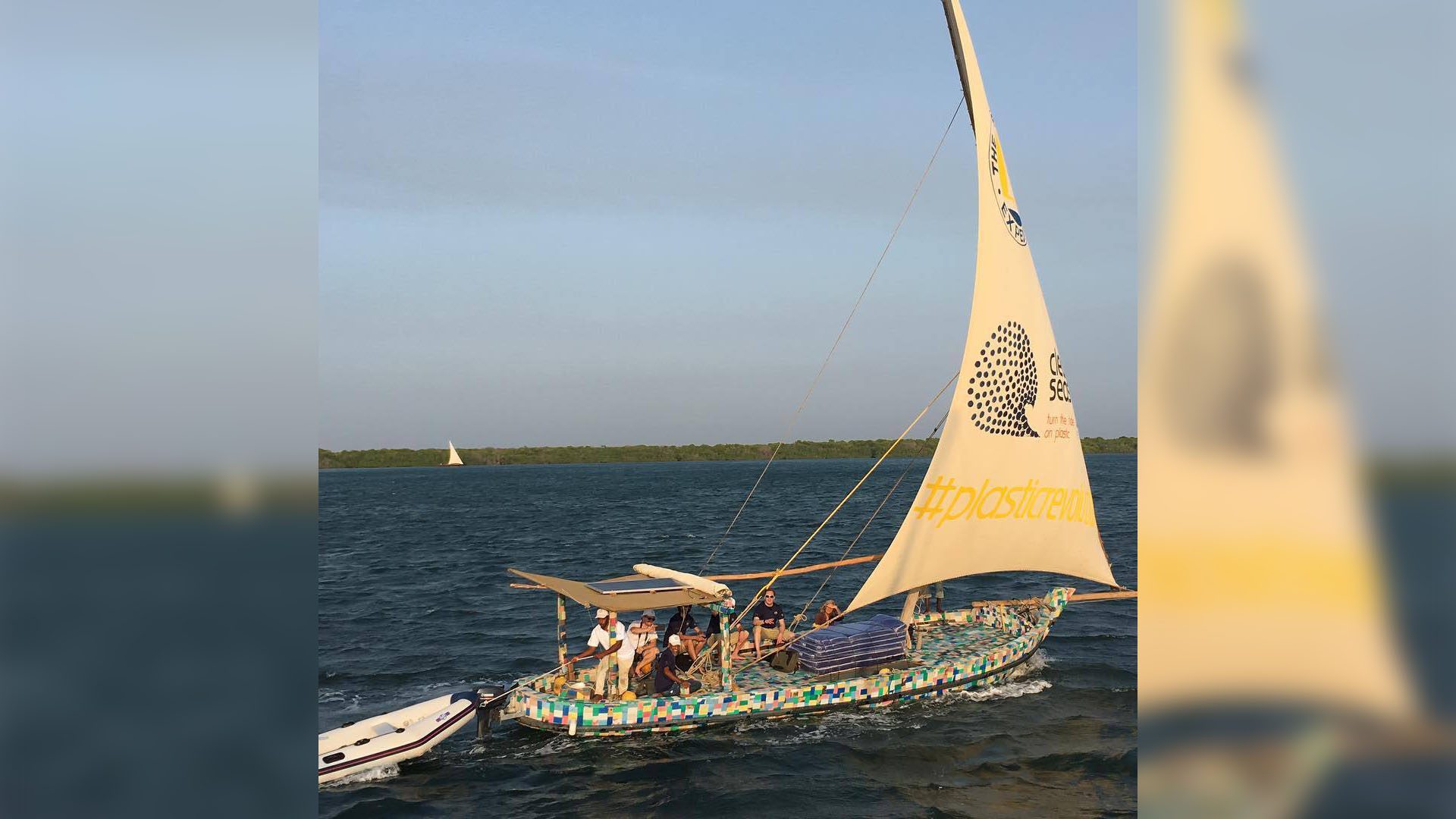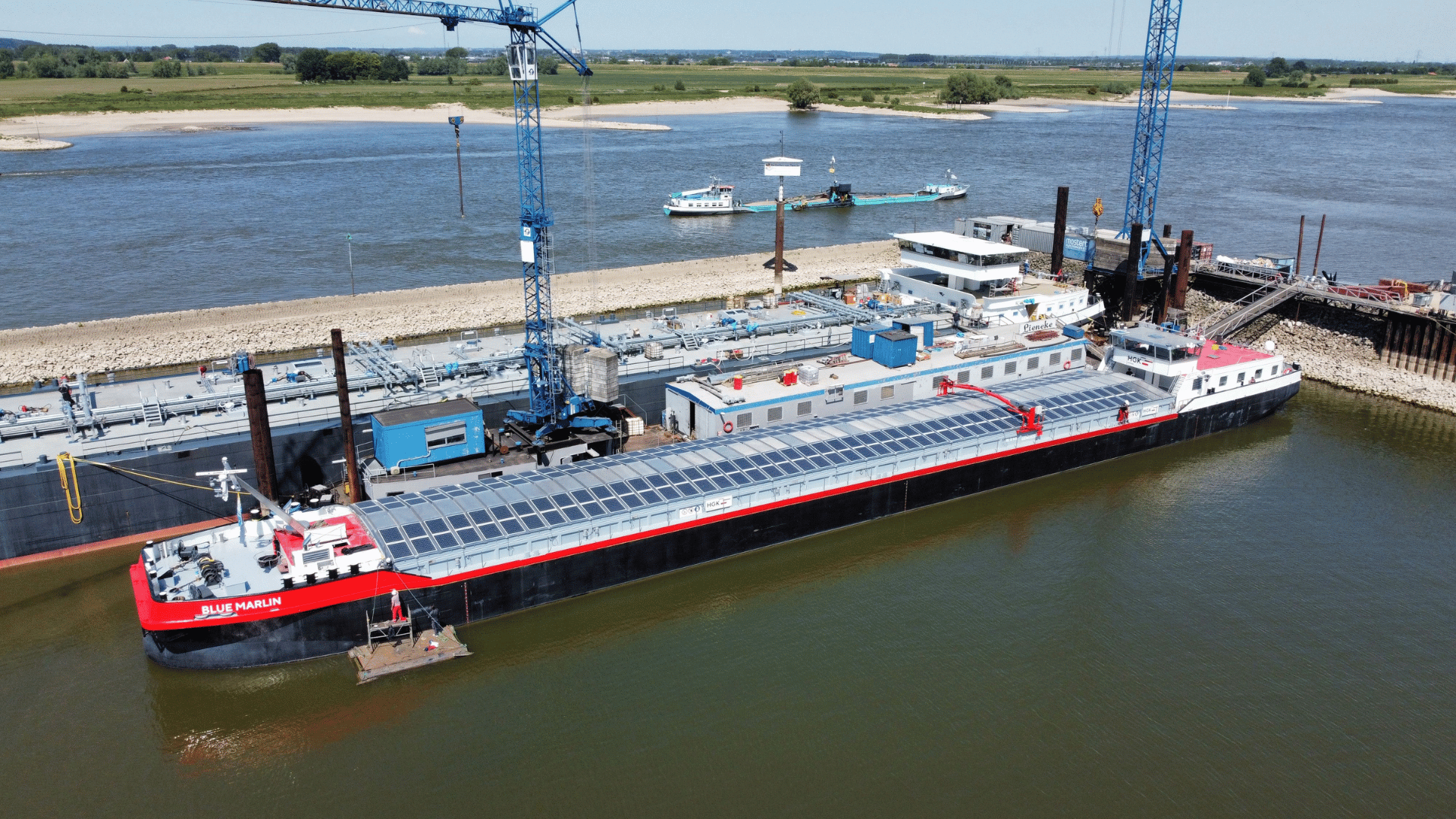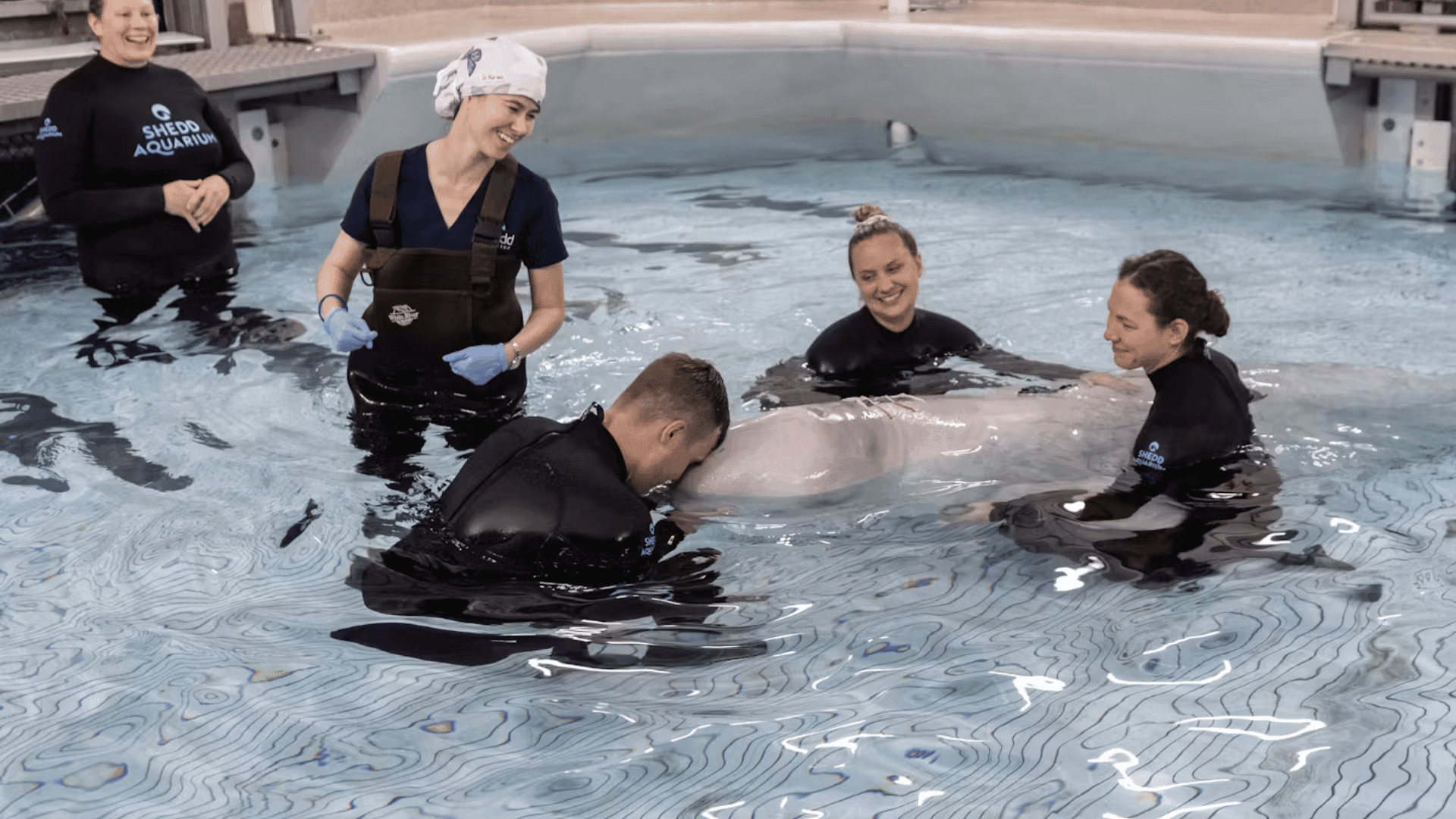According to the UNEP, about 11 million tonnes of plastic flow into aquatic ecosystems every year. Without action, this is projected to nearly triple by 2040. The Flipflopi Project turns this problem of single-use plastics and inadequate waste management systems into boats, addressing these issues while empowering local communities.

FlipFlopi’s Story
The Flipflopi Project project was founded in 2015 by Ben Morison who was frustrated by the 35 to 40 tons of single-use plastic waste that comes ashore each year to Lamu, an archipelago off of Kenya. The plastic waste ranged from water bottles to flip flops, inspiring its name.
To worsen the plastic situation, Lamu is disconnected from the large-scale waste management and recycling systems of Kenya, so there is only one waste disposal site for all 30,000 inhabitants. As a result, waste often piles up on the island; some of the waste is burned in emitting toxic fumes and other is blown into the ocean.
The FlipFlopi Ndogo
Morison began researching alternatives for used plastics and realized that building a boat from plastic waste combined a celebration of the centuries-old traditional craft of dhow building and recycling.
Dhow building is a cornerstone of the Swahili culture. The boats transported goods from East Africa to spice-trading regions like India and are still used today for transportation purposes, especially in more traditional towns like Lamu. Dhows are traditionally made from hardwood, which is expensive to build and maintain. Plastic waste, on the other hand, provides boaters with more affordable, sturdy vessels while positively impacting the ocean.
Together with Ali Skanda, a renowned sailing dhow builder from Lamu, Morison and his team built a traditional sailing dhow entirely from plastic waste: the FlipFloi Ndogo. Ten tonnes of plastic waste from the Kenyan coast were melted, shaped, and carved to create the world’s first plastic-made boat.
The keel, ribs, and structural elements are made from about 7 tonnes of recycled plastic, the sail was made from 1,500 plastic bottles, and the decking is covered by 30,000 flip-flops. The FlipFlopi Ndogo launched in September 2018 and traveled around the East African coast for two years before returning to Lamu.
In February 2022, it set sail again across the Lamu Archipelago on a two-week expedition to investigate and map the extent of marine litter in the West Indian Ocean. This scientific research will be used to understand the common types of plastic waste accumulating on the coastline, mapping areas of plastic accumulation.
Future Plans
In 2021, FlipFlopi began construction on FlipFlopi Kubwa, a 23 meters long, 60-tonne sailing boat twice as large as its FlipFlopi Ndgogo hat will also be constructed from plastic waste collected from the Kenyan coast. Flipflopi Kubwa will be big enough to embark on a worldwide journey around the world. As Ali Skanda, the cofounder of the Flipflopi Project, told us,
“We want to build a traditional sailing dhow made of waste plastics that is capable of sailing around the world and show that we have the power to create solutions that are firmly rooted in our own traditional heritage”.
FlipFlopi is also working on establishing a Heritage Boat Building Training Center, a learning hub to teach boat builders how to design and build their own recycled plastic-based dhows.
FlipFlopi is also advocating for a complete ban of specific unnecessary single use plastics across the East African community. As Dipesh Pabari, the cofounder of the FlipFlopi, told us,
“Plastic pollution cannot be tackled on a national level. We need regional and international binding legislation that is enforced by governments, adhered to by the public and holds manufacturers accountable for their products. As an organization, we are advocating for a ban of unnecessary Single Use Plastics such as cutlery, microbeads, plastic bags across the East African Community as one step towards tackling one of today’s most pressing environmental problems”.







